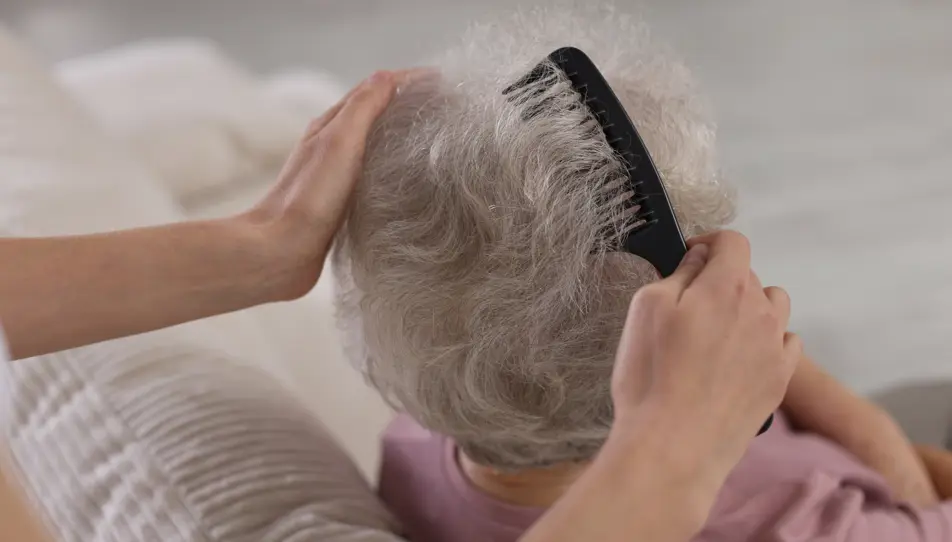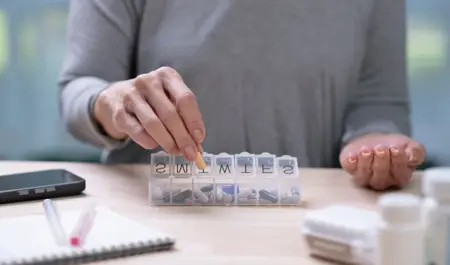

This article was created in partnership with NilAqua
Supporting Personal Hygiene in Parents with Dementia
We know first-hand how difficult some days can be when you’re caring for a parent with dementia. Tasks that once seemed straightforward, like bathing or getting dressed, can suddenly become emotional, distressing, or even impossible.
If you’re finding personal care routines difficult, please know you’re not alone. So many carents in our community share how emotionally challenging these moments can be. That’s why it’s often worth approaching hygiene with a mix of creativity and compassion. For some, that means exploring gentler alternatives like waterless hygiene solutions which can make the whole experience feel calmer, more manageable, and above all, more dignified.
Dementia changes how your parent sees and understands the world. That might include not recognising the need to wash, feeling frightened of water, or simply forgetting what to do. These aren’t acts of defiance, they’re symptoms of a brain that’s working differently now.
But with calm steps and a gentle plan, there are ways to make hygiene safer, easier and more dignified for both of you.
Why dementia can make hygiene difficult
Your parent may:
-
Forget the purpose of bathing or washing
-
Feel overwhelmed by the sensation of water or noise
-
Fear their privacy is being invaded
-
Be convinced they’ve already bathed or changed
Hygiene, in this context, becomes more than a physical task, an emotional one too, and that means your approach matters.
Waterless hygiene: a gentler solution
When bathing becomes a battle, you don’t need to choose between skipping it altogether or forcing the issue. That’s where alternatives like Nilaqua’s waterless body wash and shampoo come in.
Originally developed for hospitals and used widely in NHS care, these products are the best alternative to a traditional shower. A hybrid water based solution that really cleans you:
-
No-rinse (no water required, just remove by towel drying)
-
Non-sticky, quick-drying and dermatologically tested
-
Ideal for sensitive skin and washing just certain areas if needed.
-
Can be used anywhere, avoid the bathroom all together or bed bound
This can be especially useful when your parent resists traditional bathing but still needs regular washing to stay healthy.
Everyday tips for making hygiene easier
Whether you’re using traditional methods or waterless alternatives like Nilaqua, these tips can help make daily care more comfortable:
1. Create a consistent routine
Keeping the same time each day for washing or dressing can reduce confusion. Many carents find mornings work best, when their parent is most alert and settled.
2. Break tasks into smaller steps
Rather than saying, “Let’s have a wash,” try, “Shall we wash your hands first?” You can gradually move through the process, giving your parent the chance to adjust.
3. Offer products that feel less invasive
A towel off shampoo or body foam can feel far less intimidating than a shower or bath. Tools like NilAqua’s body wash let you cleanse gently, without any need for rinsing – ideal if your parent is bed-bound or afraid of water. Especially around depth perception, where the parent cannot see the depth of the bath.
4. Respect privacy and dignity
Use towels or robes to cover areas not being cleaned. Let your parent wash themselves where they can. This gives a sense of control, even if the task is guided by you.
5. Adapt to sensory needs
Some people with dementia become more sensitive to touch, temperature, or sound. Keep rooms warm, lighting soft, and use unscented or familiar-smelling products where possible.
When hygiene becomes a health concern
If your parent is regularly refusing to wash or change clothes and it’s starting to impact their health, it’s time to seek support. Poor hygiene can lead to:
-
Urinary tract infections
-
Skin irritation and rashes
Don’t hesitate to contact their GP or request a care needs assessment from your local authority. There may be access to personal care support or equipment to help.
Need help with this step? Read our guide on how to access local social care support (link placeholder).
Remember: you’re doing your best
If your parent resists washing, it isn’t personal. And it isn’t your fault. Their behaviour is shaped by changes in their brain, not by a desire to be difficult.
You’re navigating something incredibly personal, with love and patience. And every small step you take - whether that’s finding the right products, adjusting your routine, or simply trying again tomorrow can make a difference.
You're not alone
At Carents, we’ve walked this road too. That’s why we created our hub full of free, expert-backed information, alongside a community of thousands of people in the same position.
If you're looking for more support, you can:
-
Join the Carents Lounge – our supportive community for sharing stories, tips and compassion
-
Download helpful checklists and guides from our Resources section
-
Explore gentle products like NilAqua’s non-rinse cleaning range to make things just that bit easier. For 15% off just pop in the discount code "CARENTS" at the checkout of www.nilaqua.co.uk
Lean on us, when they lean on you.
Carents.co.uk only features partners whose values align with ours: supporting families navigating caring for elderly parents with compassion, dignity and practical advice.
- Share on Facebook
- Share on X
- Share on LinkedIn





